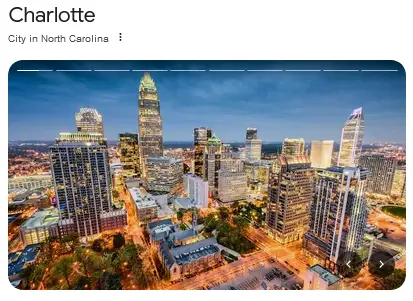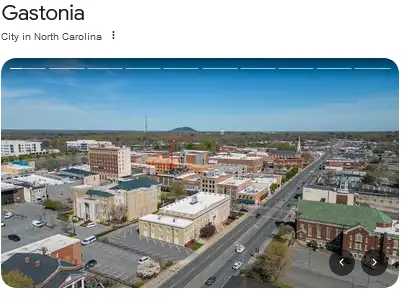
Life in North Carolina has a lot going for it, especially in Charlotte. This dynamic city is all about urban living, putting you right where the booming job markets and diverse, family-friendly neighborhoods are. The best part? No sky-high price tags like in bigger metros!
Still, no matter how great a state or city is, if it is not the right fit for you or if various problems are chasing you, you will want and need to be somewhere else.
Maybe a vacant house feels more like a burden than a home, or you are stuck with bad investment properties. You may even be facing foreclosure or are simply ready to move on. Whatever your reason, selling can be a smart and empowering solution.
How much does selling real estate in North Carolina cost? How does the process go? What are your options? All these questions are valid. Let’s answer them!
The Cost of Selling Real Estate Property
It’s easy to focus on the big number you hope to walk away with. Unfortunately, before any money lands in your bank account, you must spend some first.
In North Carolina (and anywhere else), costs pop up when selling homes. Here’s a breakdown:
- Title Insurance: Protect your right to own and sell your property with this insurance that typically amounts to 0.5% to 1.0% of the sale price.
- Transfer Taxes: When real estate changes hands, you have to pay taxes for transferring ownership.
- HOA Fees: If your house is part of a homeowners association (HOA), settle remaining fees before letting it go.
- Property Taxes: Take care of the annual fees your county or city requires, which they calculate according to your property’s value.
- Concessions: Boost your offer with perks or discounts! Concessions may include coverage for repair or closing expenditures and even appliances.
- Legal Fees: In North Carolina, hiring a real estate attorney is the law. You need a professional to do everything by the book.
- Real Estate Agent Commissions: These expenses are negotiable but usually total to 5% of the sale price.
- Sale Prep and Moving Expenses: Unless you sell to a homebuying company, you must upgrade and stage your properties. Then, there is the actual move, which can mean hiring movers and renting trucks.
If your house has code violations or issues with the deed, expect more figures to get it market-ready. Generally, when you know the math, it will not catch you off guard!

How To Sell a Real Estate Property in North Carolina
Besides all the charges that keep coming, the traditional real estate process can feel never-ending. It is never simply displaying a “For Sale” sign in the yard and receiving payment from your buyer. There are multiple steps, a lot of paperwork, and plenty of waiting involved.
Step 1: Hire a Real Estate Agent
A licensed agent will help you value your house, market it, show it to potential buyers, and negotiate offers. The agent is your partner for the sale, requiring payment only at closing.
Step 2: Prepare Your Place
Dirt and damage discourage buyers. As such, clean, fix, and repaint your property before officially putting it up for sale. Your agent will tell you the improvements you should work on based on what the market is looking for.
Step 3: Set the Right Price
Perform a Comparative Market Analysis (CMA) or invest in a professional appraisal. It is crucial to determine the right price because you do not want to wait too long or earn less than you deserve.
Step 4: List the Property
Once your home is ready, have your agent list it on the MLS (Multiple Listing Service) with good photos and descriptions. Post on social media platforms, too! The more marketing you do, the more potential buyers you will reach.
Step 5: Schedule Showings
Host open houses or private showings to let buyers see themselves living in your place. That said, every area should be clutter-free at all times. Note that these walk-throughs may happen at short notice.
Step 6: Review and Negotiate Offers
Hopefully, offers start rolling in as soon as you get the word out. Review them with your agent, including contingencies, closing timelines, and requests. Compare and negotiate terms until you end up with the best.
Step 7: Tie Up Loose Ends
Tick off everything in your to-do list, from inspections arranged by the buyer to checking purchase agreements after accepting an offer! Your real estate attorney will finalize the documents and complete title work.
Step 8: Close the Sale
Finally, sign all the final paperwork, hand over the keys to the new owners, and confirm the transferred funds. Congratulations!
Calculating Closing Costs and Wait Times
It’s only natural to seek straight answers as a seller. After all, the longer properties sit on the market, the more it can feel like you’re losing. But every real estate journey is different, and many factors influence expenses and timelines.
For instance, the demand in your neighborhood, the season you are selling in, your asking price, and the buyer’s financing situation shape how your sale plays out. Add the varying attorney fees, agent commissions, and local taxes, and you might lose track of your finances.
In Charlotte, houses typically sell in around 43 days, but even that is just an average. Timelines could move faster if homes are in excellent condition and valued correctly. On the flip side, repairs or low buyer interest could make them seem dragging.
Ultimately, selling a North Carolina property takes planning, patience, and some cash. Learn the common expectations, but be flexible. There will always be roadblocks along the way.

Save Money and Time When Selling Your Home
“What if I don’t have the money to fix my properties? What if I want to sell now?” you ask. Well, many others have been through the same situation. The traditional selling method often takes more than it gives, pushing some to turn to FSBO or “for sale by owner.”
This approach skips the real estate agent, which saves you a few thousand in commissions. However, it does not guarantee a faster sale, especially when you become responsible for everything an agent does. Aside from consuming hours, it also drains energy.
Another alternative is reaching out to a local cash buyer like Quick Fix Real Estate. These individuals or companies purchase homes in any condition and for any reason, charge no closing costs, and allow you to pick closing dates. This option solves both money and time woes!

Let Us Buy Your Charlotte, NC, House Fast
At Quick Fix Real Estate, we have been helping homeowners in Charlotte and Roanoke sell properties for over a decade. We buy houses as-is, even if they have been condemned for years and have roofs falling in. You do not have to do anything, spend a cent, or wait months to move forward!
- Step 1: Request a Free Assessment. Give us a call at (704) 318-4050 or contact us online, and our team will schedule a same-day visit to check out your place in person. This step is completely free.
- Step 2: Receive a Fair Offer. Right there on the spot, we will present a cash offer. Our experts look at the house’s value after repairs, subtract the cost of fixing it up, and add in our minimum profit. What you receive is a fair amount that comes with zero obligation.
- Step 3: Get Your Cash. If our offer sounds good, accept it. We will manage all the paperwork, and you will get paid in cash. Do you need more time to pack or figure out your next strategy? No problem! We close whenever you wish.
Quick Fix Real Estate is aware that our process seems too good to be true. Should you want us to prove that we are a legitimate homebuying company, we are eager to provide you with proof of funds. In fact, we encourage you to demand that kind of transparency from anyone!
Like agents, we stand as your partner. But unlike agents, we do not ask for any payment. Quick Fix Real Estate is a sure cash home buyer in Charlotte, even before you decide to sell.
You have nothing to lose and money to earn by the end of the week. Discover your property’s worth in Charlotte, North Carolina, now!

Frequently Asked Questions
Here are quick answers to questions we hear most often.
What Taxes Do You Pay When You Sell a House in North Carolina?
In most cases, you will pay transfer and property taxes. Always check with a professional for compliance.
How To Sell a Home by Owner in North Carolina?
FSBO means you skip hiring an agent and do all the work yourself. It is doable and affordable, but also extra demanding.
Who Pays Closing Costs When Selling a House in North Carolina?
Both the buyer and seller pay their share of closing costs. As the seller, your expenses might include attorney fees, title work, and more, while the buyer takes care of their loan-related fees.
Does the Seller Pay Realtor Fees in North Carolina?
Yes, the seller usually covers the real estate commissions for both their agent and the buyer’s agent.
Who Pays Transfer Tax in North Carolina?
It is usually the seller who settles the transfer tax at closing, with the amount depending on the final sale price.




